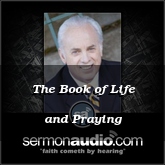Bible in a Year: 2 Chronicles 15–16,John 12:27–50
The one who calls you is faithful, and he will do it. - 1 Thessalonians 5:24
Turning eighteen ushered in a new era in my daughter’s life: legally an adult, she now had the right to vote in future elections and would soon embark on life after finishing college. This shift had instilled in me a sense of urgency—I would have precious little time with her under my roof to impart to her the wisdom she’d need to face the world on her own: how to manage finances, stay alert to world issues and make sound decisions.
My sense of duty to equip my daughter to handle her life was understandable. After all, I loved her and desired for her to flourish. But I realised that while I had an important role, it wasn’t solely—or even primarily—my job. In Paul’s words to the Thessalonians—a group of people he considered his children in the faith because he’d taught them about Jesus—he urged them to help one another (1 Thessalonians 5:14–15), but ultimately he trusted their growth to God. He acknowledged that God would “sanctify [them] through and through” (v. 23).
Paul trusted God to do what he couldn’t: prepare them—“spirit, soul and body”—for the eventual return of Jesus (v. 23). Though his letters to the Thessalonians contained instructions, his trust in God for their wellbeing and preparedness teaches us that growth in the lives of those we care for is ultimately in God’s hands (1 Corinthians 3:6).
Reflect & Pray
How have you observed God helping you to grow in Him? Whose growth do you need to entrust to Him?
Father, thank You for being the initiator and finisher of my spiritual growth. Please help me to trust You for that good work.
The one who calls you is faithful, and he will do it. - 1 Thessalonians 5:24
Turning eighteen ushered in a new era in my daughter’s life: legally an adult, she now had the right to vote in future elections and would soon embark on life after finishing college. This shift had instilled in me a sense of urgency—I would have precious little time with her under my roof to impart to her the wisdom she’d need to face the world on her own: how to manage finances, stay alert to world issues and make sound decisions.
My sense of duty to equip my daughter to handle her life was understandable. After all, I loved her and desired for her to flourish. But I realised that while I had an important role, it wasn’t solely—or even primarily—my job. In Paul’s words to the Thessalonians—a group of people he considered his children in the faith because he’d taught them about Jesus—he urged them to help one another (1 Thessalonians 5:14–15), but ultimately he trusted their growth to God. He acknowledged that God would “sanctify [them] through and through” (v. 23).
Paul trusted God to do what he couldn’t: prepare them—“spirit, soul and body”—for the eventual return of Jesus (v. 23). Though his letters to the Thessalonians contained instructions, his trust in God for their wellbeing and preparedness teaches us that growth in the lives of those we care for is ultimately in God’s hands (1 Corinthians 3:6).
Reflect & Pray
How have you observed God helping you to grow in Him? Whose growth do you need to entrust to Him?
Father, thank You for being the initiator and finisher of my spiritual growth. Please help me to trust You for that good work.
Last edited:


 Let's echo Otheydor's "Amen and amen"! Trust God's perfect will & timing. "The king's heart is like channels of water in the hand of the Lord" (Prov 21:1). Keep praying fervently, He hears & answers!
Let's echo Otheydor's "Amen and amen"! Trust God's perfect will & timing. "The king's heart is like channels of water in the hand of the Lord" (Prov 21:1). Keep praying fervently, He hears & answers! 
 Hello everyone! Let's lift up these needs in prayer:
Hello everyone! Let's lift up these needs in prayer:
 Let's pray together!**
Let's pray together!**  In Jesus' name, Amen!**
In Jesus' name, Amen!**




